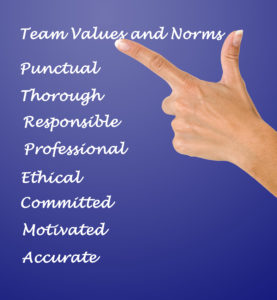Here are seven principles to follow for continued success in your life:
Pilot Fish Personal & Professional Development, LLC
Prosper on Purpose

photo licensed by www.depositphotos.com
(By Michael Babiarz) (Note the part about the hurricane, we did as he said we would)
A toaster oven seems like an innocuous appliance. Perhaps more popular 20 years or so ago than today, I was surprised to find a decent selection of them at my local, big-box, discount department store. With the proliferation of microwavable products and cheap zappers In which to cook them, the old-fashioned toaster oven is pretty anachronistic. True, you can brown your English muffin in it, but it likely will take twice as long as a pop-up toaster. Besides, with all that processed, white flour, an English muffin isn’t good for you anyway. Shame on you for thinking of such a bad breakfast. Now go have scrambled eggs (organic, cage-free and Omega-3 enriched please) and some fruit.

photo licensed by www.depositphotos.com

There is much happening in my world. As you might have gathered from the subject line, I have been quite busy. However, despite evacuating Florida last week and Hurricane Irma making landfall in Southwest Florida very close to my home (Thank you God for my abode being intact), my business is still running, for which I am giving myself a proverbial pat on the back. As I write this, my neighborhood has no potable water, insufficient sewage, no power, spotty cell service, limited gasoline and food supplies and debris strewn about. Paradise will return to Naples soon! Irmaggedon will not keep us down!

Why is commitment of the utmost importance in your life? Your ability to commit is the most important skills you can develop. It is one of the primary reasons for success or failure in life.
Commitment is the strategy utilized to match your aims. Consequently, it may be raised or lowered accordingly.

photo licensed by www.depositphotos.com

Photo licensed by www.depositphotos.com
VALUES IDENTIFICATION AND CLARIFICATION
It is time to identify your values. Getting clear about what’s most important to you in life will help you establish a firm foundation for every decision you make, investing or otherwise. Knowing your values will free you from those moments of stunning and frustrating indecision about everything from what to invest in to where to work to what and who is on your calendar. When you take steps to clarify your values, you are making the decisions about your unifying or operating principles. You decide what you believe and what you stand and do not stand for.

photo licensed by www.depositphotos.com

photo licensed by www.depositphotos.com
Have you ever made a mistake?
We have all made them. One of the most powerful and freeing things you can do is to admit it when you have made a mistake. The quicker, the better so that you can move on to the next right situation.
When you are wrong 70% of the time (and as humans, this is the case), it’s easy to make a mistake. The more you try, the more likely it is that you will make one!
It’s best not to waste time defending something that did not or will not work out. Move on and do something different or better. Fix the mistake by developing and implementing the solution.

photo licensed by www.depositphotos.com
Zero Interest Credit: Too good to be true? By: Ari Page, business funding expert
The old adage is that if it sounds too good to be true, it probably is. Browsing through your mail, you’ve likely come across no interest credit solicitations from various institutions and wondered how they can do that. In the case of zero interest credit, the adage actually doesn’t apply.
To understand how they can do it, you must consider how banks operate. Modern banks operate through the use of short term financing and interbank loans, which are used for lending and, in turn, profitmaking. In other words, if a bank isn’t lending money, it isn’t making money. Since the great recession hit, interest rates have remained at historic lows and banks have been able to borrow at near zero percent from the Federal Reserve. Banks will then lend funds out through a variety of products, with a variety of terms. Again, with rates at historic lows, banks are able offer better rates to their customers.
But still, borrowing at zero and lending at zero doesn’t make sense, right? If you think about other ways that banks make money, it makes complete sense. Consider what banks do with credit card receivables.
Since 1987, banks have pooled credit cards securities into an asset backed security, which is then sold to investors. With over $200 billion in securities issued, companies, such as Citi, fund upwards of 50% of their credit card loans through asset backed securities using credit card receivables as their asset. Much like their mortgage and auto loan backed securities brethren, they’re sold based upon the creditworthiness of the pool. The ratings range from AAA to D, with AAA being deemed the least risky.
In other words, business owners, and other highly creditworthy borrowers, are pooled together into AAA rated securities, which offer the least risk to the investor and pay a lower rate of interest. Marginal borrowers, or those considered subprime, would be a higher risk and a lower rating, which requires a higher interest payment. The bank subsequently uses the investor’s capital to fund more credit card loans, while the investor earns interest on their investment.
In recent years, banks have tried to make fees part of their “bread and butter.” Not only do they do this to pad profits, but also to make up the difference for lost interest. Want to transfer money from a higher rate card to an interest free card? There’s a balance transfer fee for that. Unlike revolving cards or credit lines with an interest rate, the balance transfer fees may be uncapped to make up for lost interest income. Moreover, some cards also have an annual fee, which is simply you paying for the privilege of having the card or line of credit. Annual fees are most common on rewards cards which, generally speaking, do not offer interest free terms.
Working with a company of such a high caliber as Fund & Grow, which specializes in helping small business owners obtain no interest business credit, can help you sort through the morass of balance transfer fees and annual fees to ensure that your APR is as close to zero as possible.
Although the zero percent interest term may be capped, CCB Corporate Officer, Ari Page, mentioned in a recent radio talk show interview that “If you’re a professional and you know what you’re doing, that’s just not the case. Banks hope you’re not savvy enough to realize that if you know who to talk to and what to say, you can keep rolling over zero interest introductory offers for the foreseeable future” using what he calls “exit strategies.” According to Mr. Page, business owners are the “crème de la crème” in
Concerned that an event, such as a health issue, natural disaster, job loss or relationship problem might wipe out your nest-egg?
Has a loved-one made your their Power of Attorney & you are unsure what steps to take?
©2008-2022 Ann M. Babiarz. All rights reserved worldwide 1.847.525.9129 | Terms & Conditions | Site designed by The Land of BrandCLIENT LOGIN
NAPLES, FLORIDA